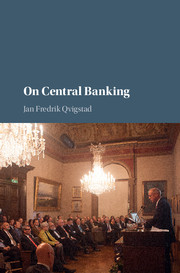Book contents
5 - On Learning from History: Truths and Eternal Truths
Published online by Cambridge University Press: 05 July 2016
Summary
Introduction
All scientific and scholarly disciplines have a particular, and not immutable, set of truths. Mathematics and theology are possible exceptions, though for different reasons. As the late Professor Knut Sydsæter underscored when assisting me with this speech, in mathematics new results are proved on the basis of fundamental axioms and become new truths. Theology also relies on truths, even eternal truths. Even if logical proofs of God's existence have long been an important pursuit, it is safe to say that the truths in theology today stem from faith.
The discipline of economics can readily be formulated in the language of mathematics, and economic models are usually tested empirically before gaining acceptance. Conflicts arise when theories that appear to be patently true are unsupported by empirical evidence, or when contradictory theories find support at the same time. In other words, we economists are in a borderland between faith and the strict proofs of mathematics.
The notion of learning from history cannot easily be explored without invoking the American physicist Thomas Kuhn. This year is the fiftieth anniversary of the publication of his groundbreaking work, The Structure of Scientific Revolutions. According to Kuhn, disciplines progress within an established set of truths – a paradigm. Observations irreconcilable with the paradigm are tolerated as inexplicable. Eventually, however, the number of inexplicable observations can become so overwhelming that the paradigm breaks down. New truths have to be established – a paradigm shift occurs.
Such shifts can be painful. The old paradigm will usually be defended by those whose training lies in a more distant past, often persons in positions of leadership in academia and government bureaucracy.
Long before Kuhn, Henrik Ibsen touched upon the same idea in An Enemy of the People. Doctor Stockmann talks about the few who attain the new truths, unlike the compact majority that have yet to embrace them.
Social scientists, like economists, face some peculiar problems when attempting to learn from history. First, we do not have a laboratory in which we can perform experiments. Second, economic policy is part of the reality we observe. The outcome of a particular measure will depend both on shifting economic conditions and on economic agents’ expectations of the effect of that measure. It goes without saying that in a situation like that, drawing useful lessons from history can be a challenge.
- Type
- Chapter
- Information
- On Central Banking , pp. 124 - 155Publisher: Cambridge University PressPrint publication year: 2016

